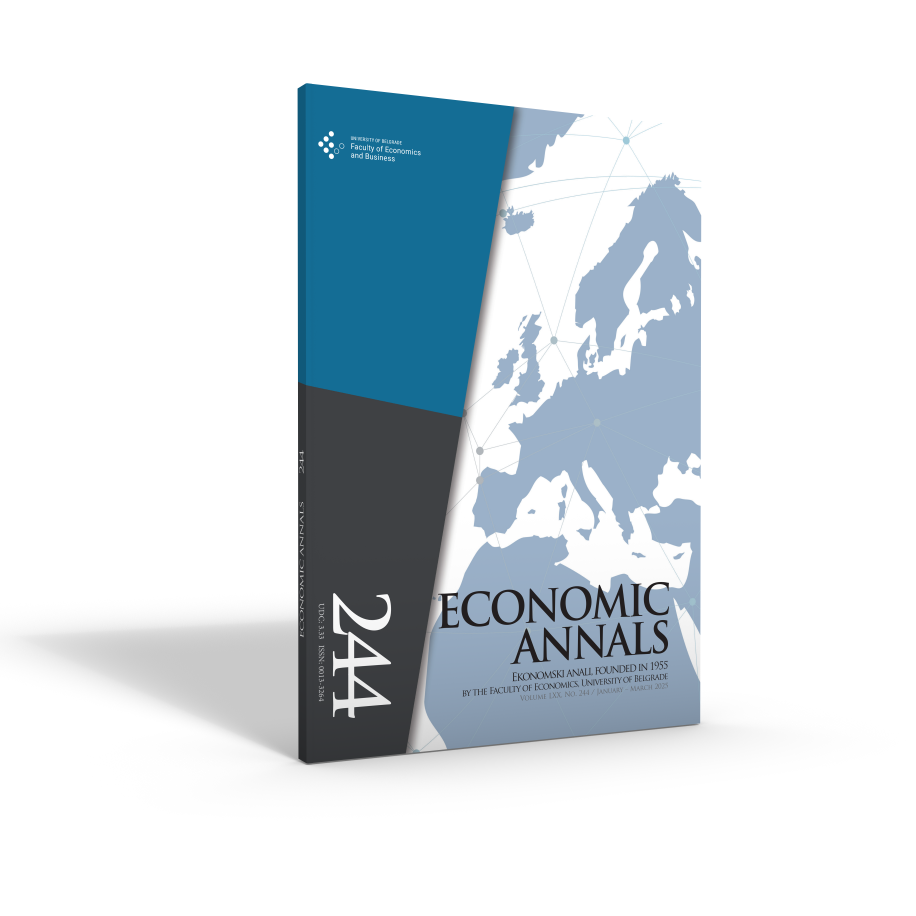CAUSAL RELATIONSHIPS IN THE BALANCED SCORECARD: A SERBIAN BANKING PERSPECTIVE
##plugins.themes.bootstrap3.article.main##
##plugins.themes.bootstrap3.article.sidebar##
Andrijana Đurđević
Abstract
This paper examines causeand- effect relationships within the balanced scorecard (BSC), focusing on the case of commercial banks operating within the territory of Serbia. Despite the widespread application of the BSC as a strategic management tool, the literature presents diverse conclusions regarding the efficacy of its cause-and-effect relationships. The research aims to investigate the interrelationships between perspectives, with a specific focus on the financial perspective and its causal factors. A study was conducted on five banks operating in the territory of Serbia using the method of documentation analysis, and data were collected for the period from 2010 to 2023. The conclusions are based on the results of simple panel data regression and multiple panel data regression. The results obtained provide empirical support for previously established cause-and-effect relationships within the BSC framework and also highlight new implications of causality among perspectives.
##plugins.themes.bootstrap3.article.details##
BSC (balanced scorecard), balanced scorecard perspectives, causality, banking sector


 https://orcid.org/0000-0003-4358-7465
https://orcid.org/0000-0003-4358-7465